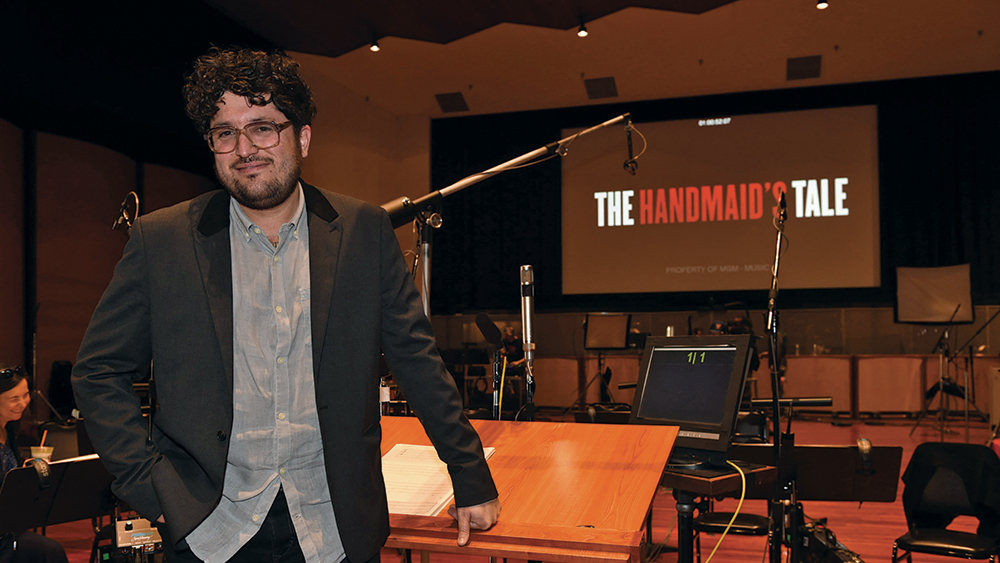‘The Handmaid’s Tale’ Composer Adam Taylor Takes Cue From Elisabeth Moss
By Jon Burlingame
LOS ANGELES (Variety.com) – Peter Rotter is at the podium on the Warner Bros. scoring stage, about to conduct music for the season finale of “The Handmaid’s Tale.” “You really bring the humanity to a very intense show,” he tells his 27 string players.
Adds composer Adam Taylor: “It’s the triumph of the human spirit over the evil of Gilead.” He then dashes back into the booth to listen and offer direction to the musicians, who will play some 26 minutes of music for the episode, airing July 11 on Hulu.
Taylor sits at the mixing board watching the players, marking his score with a pencil and conferring with Rotter via intercom. “A candidate for quartet?” he asks after an initial run-through of one cue with a rich string sound. A delicate, more intimate ambience emerges with the next take, and both composer and conductor decide that’s the best approach for the scene.
“This season,” Taylor explains during a musicians’ break, “Offred is empowered because she’s pregnant. We see other characters start to push against the system as well, and as a result, I started to write more for orchestra, more uplifting pieces, more grand sounding.
“I think of the orchestra as the sound of humanity in the midst of everything,” he adds. “We’re seeing more shades of these characters, outside of the identities that have been forced on them. Last season, they were shrouded in dark tones.”
Taylor begins each episode in his Long Beach, Calif., studio, using an old Prophet synthesizer to emulate organ sounds, then adding grand piano, celesta, theremin (“to represent the oppressive government”) and his own vocals (“to go even further into the humanity”). The string ensemble provides the finishing touch.
Surprisingly, Taylor regularly confers about music with star and producer Elisabeth Moss (he calls her “Lizzie”), who plays Offred. It began last year, she tells Variety: “I had a note on a music cue, and I ended up writing him this long email that wasn’t about music, but just telling him what I felt the scene was about for me, describing what my character was feeling and what I wanted the scene to say.
“He came back with this incredible cue with the Spanish guitar. It just absolutely broke my heart, the most gorgeous and perfect representation of what my character was feeling. The process worked so well for us that we just sort of kept doing it,” Moss adds.
“I never tell him what to do in musical terms, because he’s the genius and knows that far better than me,” she continues. “I only speak in the terms that I know, the emotions and thoughts of my character and what’s going on in the scene. And then he takes it from there and does something that is better than I ever could have imagined.
“Score is so integral to any project,” she explains. “The best composers know how to elevate but not distract, and the best scores match the emotions of the scene. That’s what Adam does. He finds the heart of a scene and illuminates that. The music becomes an extension of the performance.”

